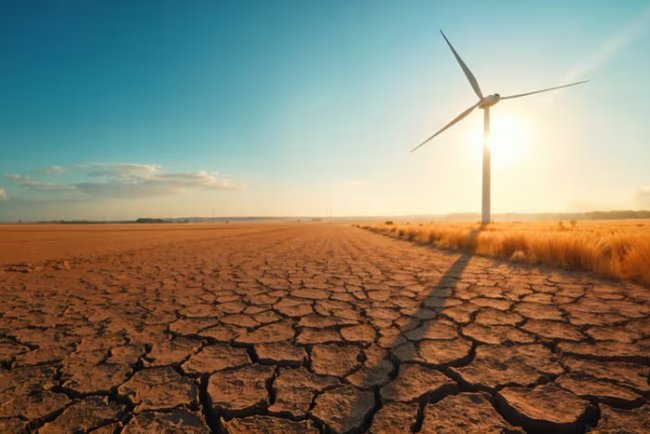Celebrating Nature: World Conservation Day 2025 Spotlights Worldwide Initiatives
World Nature Conservation Day 2025, observed on 28 July, promotes global efforts to protect ecosystems, reduce emissions, and foster sustainable practices for a healthier planet.

Tuesday 28 July 2025 – World Nature Conservation Day highlights the need to conserve the earth's ecosystems and biodiversity. This is an event every year to encourage people and communities as well as governments to help save the planet and address environmental challenges. Particularly in an era when deforestation, global warming and pollution are causing havoc in the ecosystems, the day is a reminder of our collective responsibility to ensure the future of all plant and animal species.
World Nature Conservation Day was established to generate awareness on how crucial it is to conserve natural resources and maintain the ecological balance. It puts into relief issues of habitat loss, depletion of species, extinction of resources (that) resonate for human and animal species alike. The day invites one to act such as cutting down on wastes, conserving water and promoting renewable energy to mitigate harm to the environment. The year is all about mass action in governments', businesspeople's and individuals' plans to make sustainable moves towards saving the planet.
Environmental issues are mounting globally. Climate change is raising temperatures, extreme weather and ice caps melting, which puts coastal communities and wildlife at risk. Deforestation in the Amazon and Southeast Asia is reducing biodiversity and disrupting carbon cycles. Marine life is still being ravaged by plastic, with millions of tonnes pouring into oceans every year. This is where World Nature Conservation Day enters the scene which bring such problems into perspective, campaign solutions reforestation, sustainable farming, and other policies to lower greenhouse gas emissions.
It's 2025, and the tide turns to conservation. Nations are shifting towards stricter laws to conserve endangered species and ecosystems. India, for instance, has expanded its protected areas in tiger, elephant and wetland conservation efforts. In Africa, it is anti-poaching efforts that are making a difference in returning rhino and elephant populations to stability. Meanwhile, international accords such as the Paris Accord continue to spark expectations about cutting carbon emissions. Such endeavours demonstrate progress, although challenges persist, with the extensive urbanisation and industrial growth taxing the natural environment.
We’re spotlighting community-led efforts this year. Grass root levels are seeing movements that are encouraging tree planting, clean-up campaigns and green farming. In the cities, the masses are starting to ask questions about their eco lifestyle from public transport and recycling to single-use plastics. From schools to colleges, environmental studies have been made compulsory to learn conservation among youth. In proportion, such actions, when done on a worldwide scale, contribute significantly to saving ecosystems and minimising environmental effects.
Conservation is increasingly being tied to technology. Forest loss and wildlife population are also tracked with the help of drones and satellites, which offer ways of responding rapidly to threats. New technology focusing on renewable energy, i.e., solar and wind power, is being rolled out on wheels and no longer uses fossil fuels. Advances in waste management in the form of producing biodegradable products and advanced recycling systems are also playing their role in pollution solutions. Technology for sustainable development to mark the World Nature Conservation Day 2025 on resolving the problems and challenges of the environment.
Governments are also taking the lead. There is a firm policy emphasis on both renewable energy and sustainable land use in numerous countries. To take a specific example, the European Union has ambitious targets to become carbon neutral by 2050. The developing world is also receiving assistance: assistance to adopt green technologies, to conserve biodiversity. But implementation has been challenging, in some instances because of a lack of will and capability on the political or regional front to establish appropriate conservation orders. Cross-border cooperation is indispensable to bridging these gaps, and to facilitating world progress.
The economic arguments for conservation are unambiguous. Agriculture, fishing, and tourism, which are vital to many economies, rely on healthy ecosystems. Forests are carbon sinks that offset global warming, rivers and oceans purify the soil to yield crops. By conservation investment, nations can preserve these resources and bring economic stability in the long run. World Nature Conversation Day reminds us that protecting the environment is not only a moral responsibility from the point of view of values but an economic necessity as well.
Everyone can make a difference in small ways. Conserve energy, buy locally and sustainably, and clean up the neighborhood are easy actions that anyone can do. Not wasting water or food also saves resources. Lobbying is also an effective weapon—raising awareness on social media or in public events can mobilize others to take action. World Nature Conservation Day invites everyone to do their part, no matter how minor.
In summary, World Nature Conservation Day 2025 is a worldwide call to safeguard the world's ecosystems and resources. From policies made by governments to community action and technological advancements, the day emphasizes the different methods required to combat environmental issues. Through encouraging united action and sustainable living, it hopes to ensure a future where nature and humankind can coexist in harmony. While the world is increasingly under environmental stress, today is a reminder that no effort made towards conservation is too small.
Source: Information gathered from general knowledge and public domain resources regarding World Nature Conservation Day, 28 July 2025.
What's Your Reaction?

















